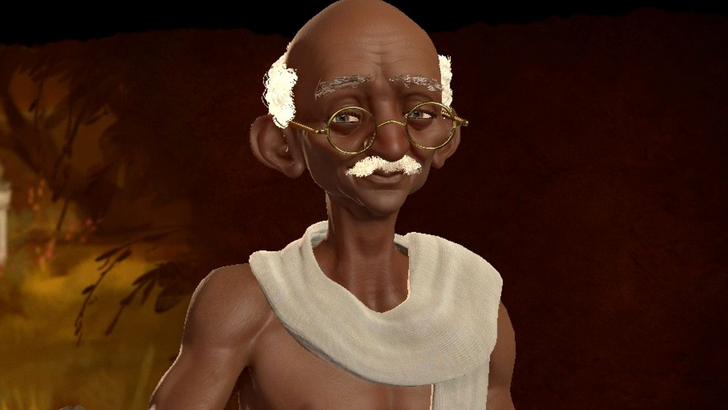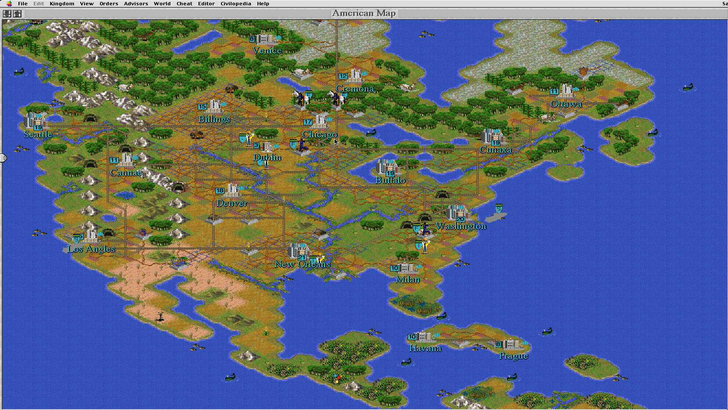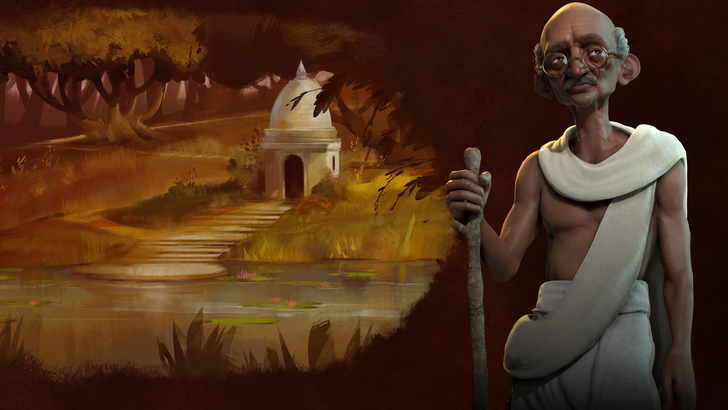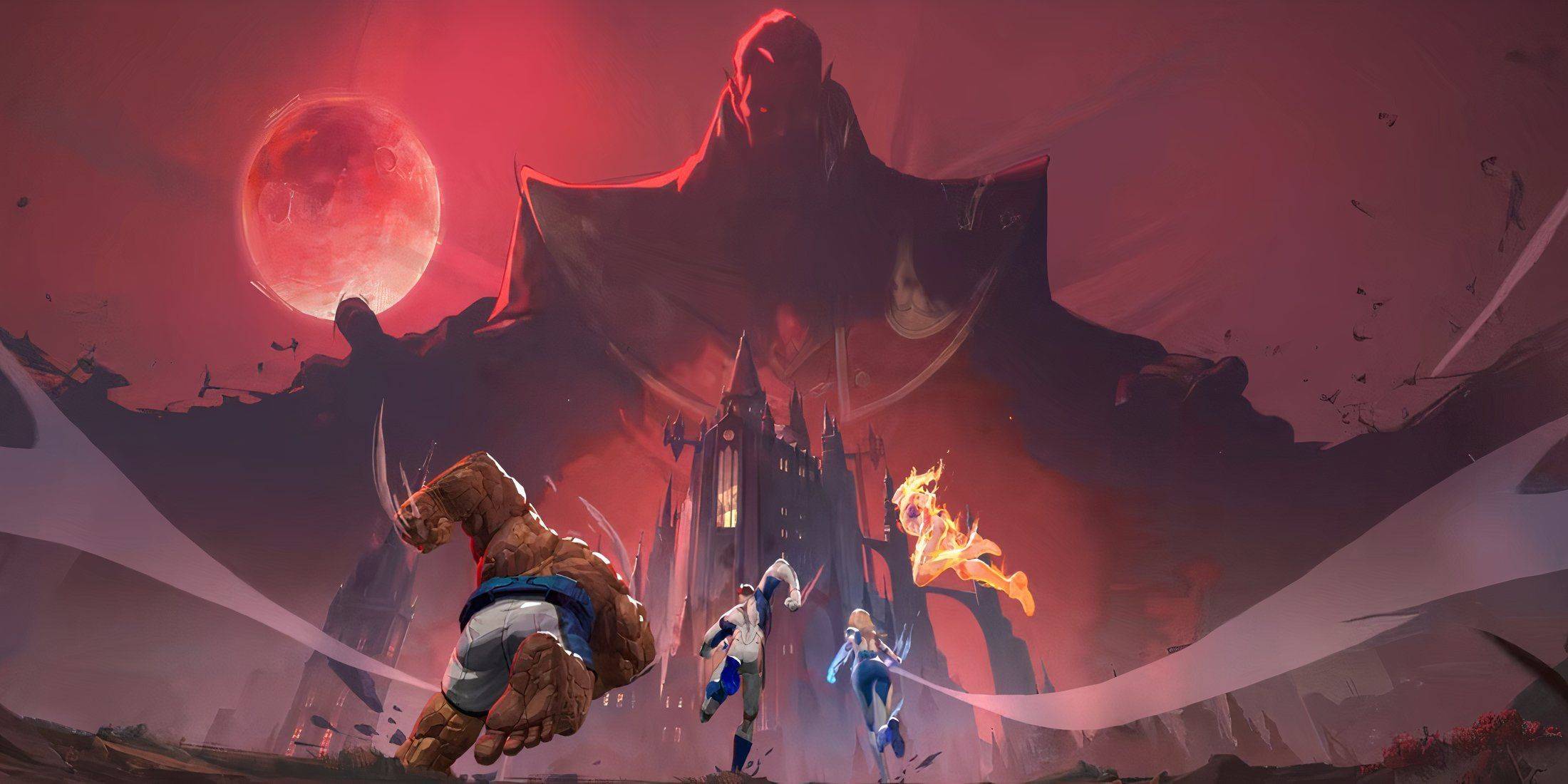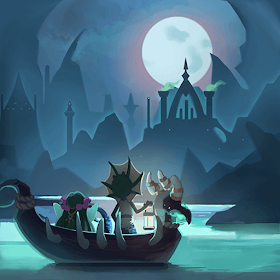The "Nuclear Gandhi" myth: A Civilization legend debunked
The infamous "Nuclear Gandhi" bug from the original Civilization game is a well-known gaming legend. But was this tale of the peaceful leader unleashing nuclear devastation actually true? Let's explore the history and reality of this famous glitch.
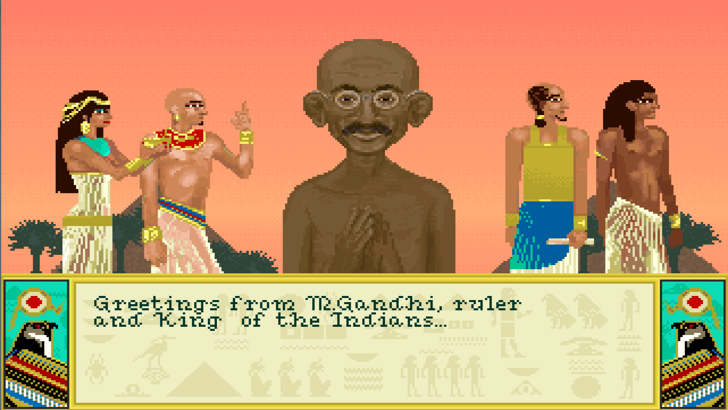
The Legend
The story goes that in the original Civilization, leaders had an aggression rating (1-10, or in some versions, 1-12), with 1 being pacifist and 10 being aggressive. Gandhi, being historically peaceful, started at 1. Upon adopting Democracy, his aggression supposedly dropped by 2, resulting in -1.

The alleged bug: This -1 value, stored as an 8-bit unsigned integer (0-255), supposedly caused an integer overflow, flipping it to 255 – making Gandhi incredibly aggressive. With nuclear weapons accessible after adopting Democracy, this led to a scenario where the pacifist Gandhi became a nuclear-wielding warmonger.
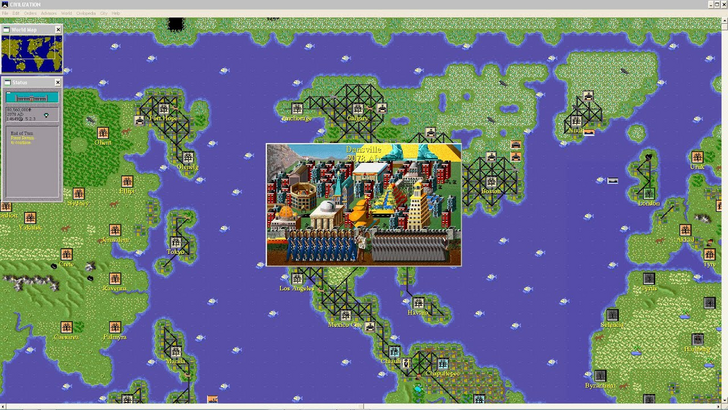
The Spread of the Myth
The Nuclear Gandhi legend didn't gain traction until the mid-2010s, long after the original Civilization's popularity waned. Verifying the claim was difficult, and the age of the game fueled speculation.
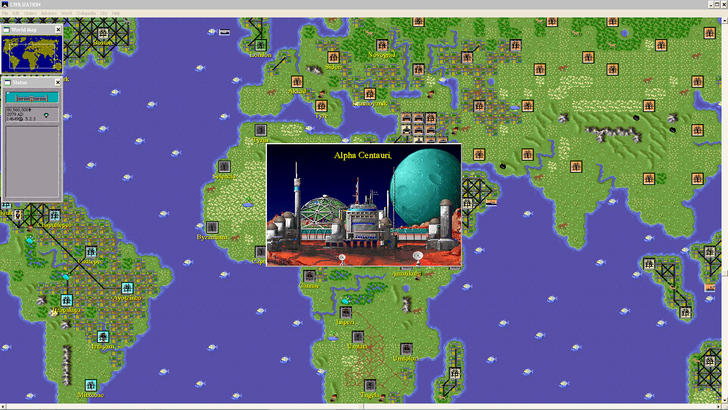
Debunking the Myth
Sid Meier, the creator of Civilization, confirmed in 2020 that Nuclear Gandhi was impossible. He stated that integer variables were signed, preventing the overflow. Furthermore, government types didn't affect aggression levels. Brian Reynolds, lead designer of Civilization II, corroborated this, stating the original game only had three aggression levels.
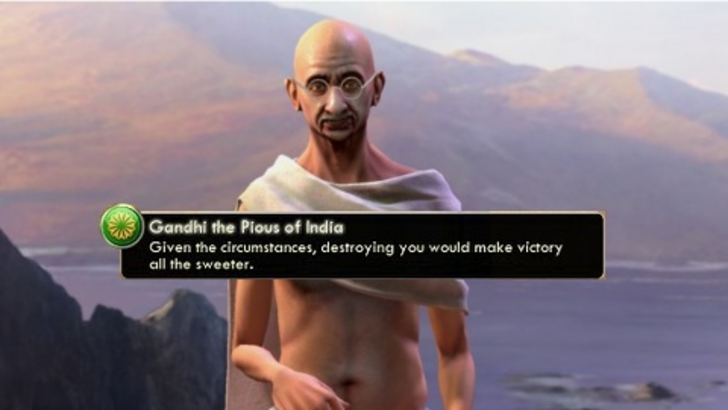
The Reality
The legend likely originated from a combination of factors. A user added the mythical bug to TV Tropes in 2012, and gaming publications amplified the story. While the original game didn't have a Nuclear Gandhi bug, Civilization V did have Gandhi coded with a high preference for nuclear weapons.
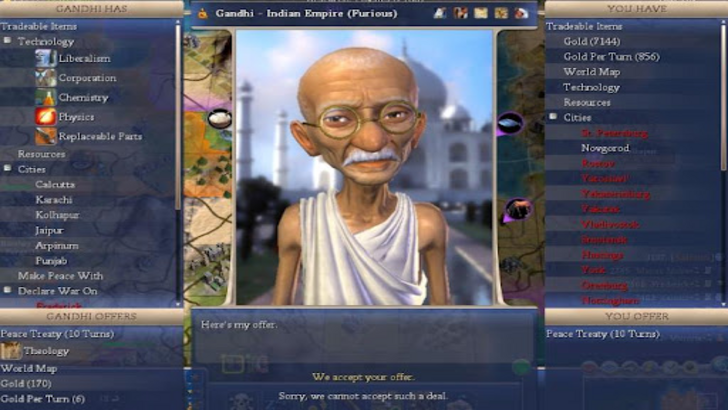
The Legacy
Despite being debunked, Nuclear Gandhi remains iconic due to its ironic humor. Civilization VI even referenced the myth. With Gandhi absent from Civilization VII, the legend might finally rest, but some myths endure.
